Who Pays For Damages In A Car Accident?: Car accident is a very reoccurring incidence in every part of the world. Accident is an event which occurs independently of one’s intention which usually leads to damages. It may be anticipated or foreseen, and yet not momentarily preventable. It is an accident because it does not afford the parties involved enough time to take measures to avert it. Nobody wishes for an accident because it is ordinarily destructive. What can be merely done are proactive measures that will limit the chances of its occurrence such as keeping a safe environment, roadworthy vehicles, and healthy individuals whose best state of mind is needed to propel the vehicles.
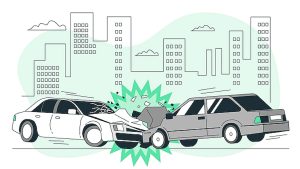
Even when proactive measures are put in place, accidents will always occur occasionally as a result of negligence, recklessness or even unexpected occurrence. It follows that one cannot be cautious enough to avoid accident because in an accident, two or more people are involved. While one can exercise caution on his own side, the other person may be reckless at some point.
When accident occurs, damages are recorded ranging from personal bodily injury, injury to a third party, destruction of vehicles and surrounding items, and so on. Thereon, the question of liability arises. Who then will be liable to pay damages sustained in a car accident? This poses more demanding question when the accident did not arise from the fault of the parties involved. In this article, the liabilities in a car accident shall be discussed.
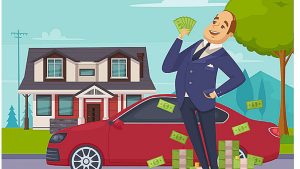
Recommended: Best Countries to Practice law in the world
WHO BEARS THE RESPONSIBILITY FOR COSTS IN THE EVENT OF AN ACCIDENT?
After an accident has occurred, the next natural cause of action is to remedy the damages that have been recorded. In determining how best to remedy the damages, one basic factor that is considered is who caused the accident. In other words, who is at fault? The parties after the occurrence would usually begin to attribute faults. There are occasions where it is clear as to who is at fault. This makes the determination of liability easier.
It follows naturally that a party who is at fault should be responsible for fixing or paying for the damages caused. The fact that the occurrence is by accident does not exonerate or limit liability. The liability ordinarily is at the fullest cost of damages. The party at fault will be required to pay the innocent party the cost of damages incurred, regardless of whether the party at fault recorded his own damages too. Of course, the parties can agree to forego the damages where such understanding exists, and this is very permissible.
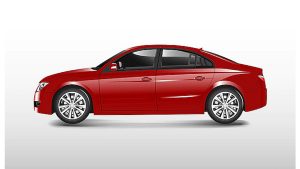
Recommended: Most Technology Advanced Countries In Africa
WHO BEARS THE LIABILITY WHERE THERE IS CONTRIBUTORY NEGLIGENCE (E.I WHERE BOTH PARTIES ARE AT FAULT)?
Negligence is said to have occurred where party who owes duty of care to another breaches that duty of care, and damages arise from the breach of that duty of care. Negligence is any conduct that is short of intentional or reckless action which falls below the legal standard for the prevention of unreasonable injury. The neigbour principle established under negligence per Lord Atkin in the case of Donogue v Stevenson proposes that a person’s neigbour includes any person that may be affected by the actions of another.
The cases of accident are covered by this neigbour principle if it is established that the accident occurred as a result of negligence of either or both of the parties. Where negligence of any party is established, liability arises against that party. Under negligence flows the principle of contributory negligence. The principle of contributory negligence is that where the plaintiff’s act or omission contributes to the cause of an injury or damages, such plaintiff would be termed to be a contributor to the damages. And in that case, the plaintiff would be barred from having a complete recovery. In fact, he would be liable to contribute to the payment of the damages in a circumstance which warrants same.
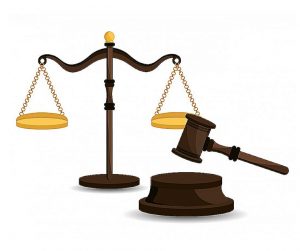
Having established the principle of contributory negligence, it is clear that where both parties contributed to the cause of an accident, (assuming that only two parties are involved in the accident), both of them would be liable to contribute to the reparation of the damages caused to such degree of their negligence. By way of illustration, where A and B collided and both of them were at fault, both of them would be liable to remedy the damages caused by the accident. However, where the degree of their contribution to the damages is ascertainable, their liability would be measured in such degrees.
Recommended: Advantages and Disadvantages of being single
WHO BEARS THE LIABILITY FOR DAMAGES WHERE THE CAR IS INSURED?
Insurance is an arrangement where a party known as the insurer undertakes to indemnify another party known as the insured should the insured event occurs.
In many countries, it is unlawful to drive a vehicle that is uninsured. Legislation varying by countries do make is compulsory to have your vehicle insured. This is known as third party (motor vehicle insurance). In third party insurance arrangement, the insurer undertakes to indemnify the insured for the damages or injuries caused by the insured to a third party.
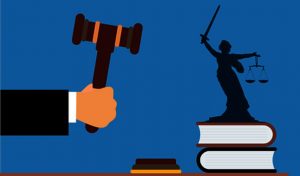
The implication of third party insurance is that where an accident occurs, the owner of the vehicle so insured shall not bear the burden of paying for the damages caused by him with his insured vehicle. The insurance covers third parties who are affected by the accident; it could be the pedestrians, another vehicle or any item damaged by the accident in the surrounding. Who then bears the burden of paying off the damages? Of course, it is the insurance company (the insurer). In some jurisdictions like in Nigeria, certain categories of cars are exempted from paying the third party insurance cover such as government owned cars. This is because it is deemed that the government can always pay for third party damages incurred by them in case of an accident.
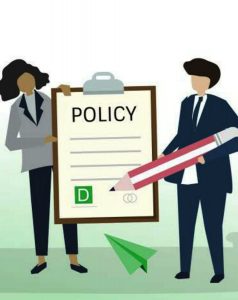
The workability of this third party insurance in Nigeria, however, is questionable and doubtful as it relates to indemnifying the damages caused. Maybe because, Nigerians see the policy as mere procedure that must be fulfilled before a car can be driven in Nigeria. But as for whether it is mandatory to get the insurance, yes it is.
But generally, where there is insurance and the insured event occurs, and there is nothing invalidating the policy holder’s right to claim for indemnification, the insurer would be liable to pay for the damages accordingly. And where it is a third party insurance, the insurer would equally be liable to pay for the damages caused to the third party. Where the car itself is insured and not just third party insurance, the insurance company will still be liable to pay for the damages.
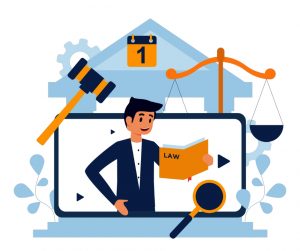
Recommended: Countries With The Highest Rate Of Cybercrime
HOW CAN THE EXTENT OF DAMAGES BE CLAIMED?
Whether the damages is being paid by the party at fault, or by the insurance company (in the case of an insured car), there would be need to quantify the extent of the damages caused. As earlier stated, damages could range from bodily injury, car damages, and so on. Where the car is insured, it is very important to notify the insurance company of the state of things immediately. Failure to inform the insurance company within the time prescribed in the policy or where no time is prescribed, within a reasonable time, can bar your from recovering in the policy.
The insurance company would ascertain and evaluate the damages, make investigations as to the cause of the damages, and then do all that is needful before indemnifying the party. Where insurance company is not involved, the parties will have to evaluate the damages themselves. Evaluation of losses may include medical bills, bodily pains resulting from injuries sustained, cost of repairing or replacing the car as the case may be, cost of future financial losses as a result of injuries or damages recorded, and so on. The damages can be claimed through private settlement by the parties involved or through court action.
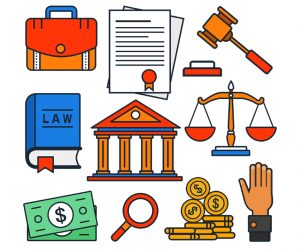
Recommended: Best trained army in the world
Conclusion
Car damages are very reoccurring events which most drivers must have gotten a glimpse of. The accident and the damage need not be severe, yet the question of liability will always arise. The natural cause of action is the party at fault to pay for damages, but as recorded in this article, circumstances may warrant that liability would shift.

Edeh Samuel Chukwuemeka, ACMC, is a lawyer and a certified mediator/conciliator in Nigeria. He is also a developer with knowledge in various programming languages. Samuel is determined to leverage his skills in technology, SEO, and legal practice to revolutionize the legal profession worldwide by creating web and mobile applications that simplify legal research. Sam is also passionate about educating and providing valuable information to people.